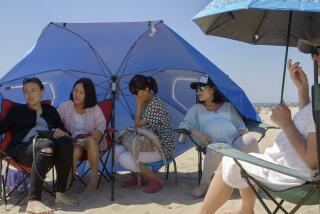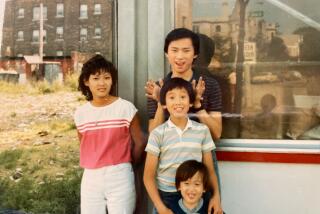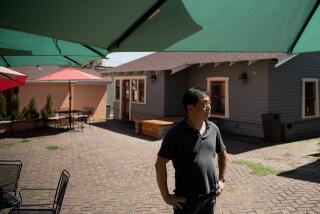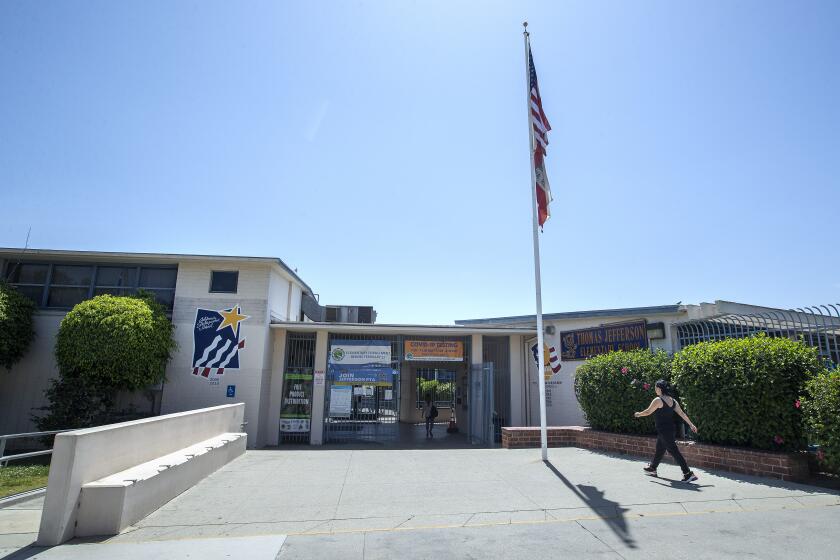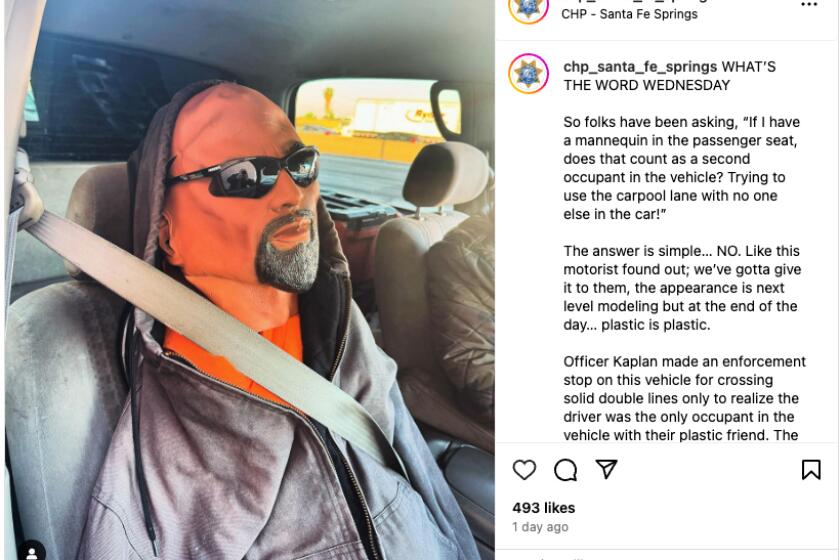Column: Forget it, Jake: If Chinatown is a metaphor for anything, it’s America
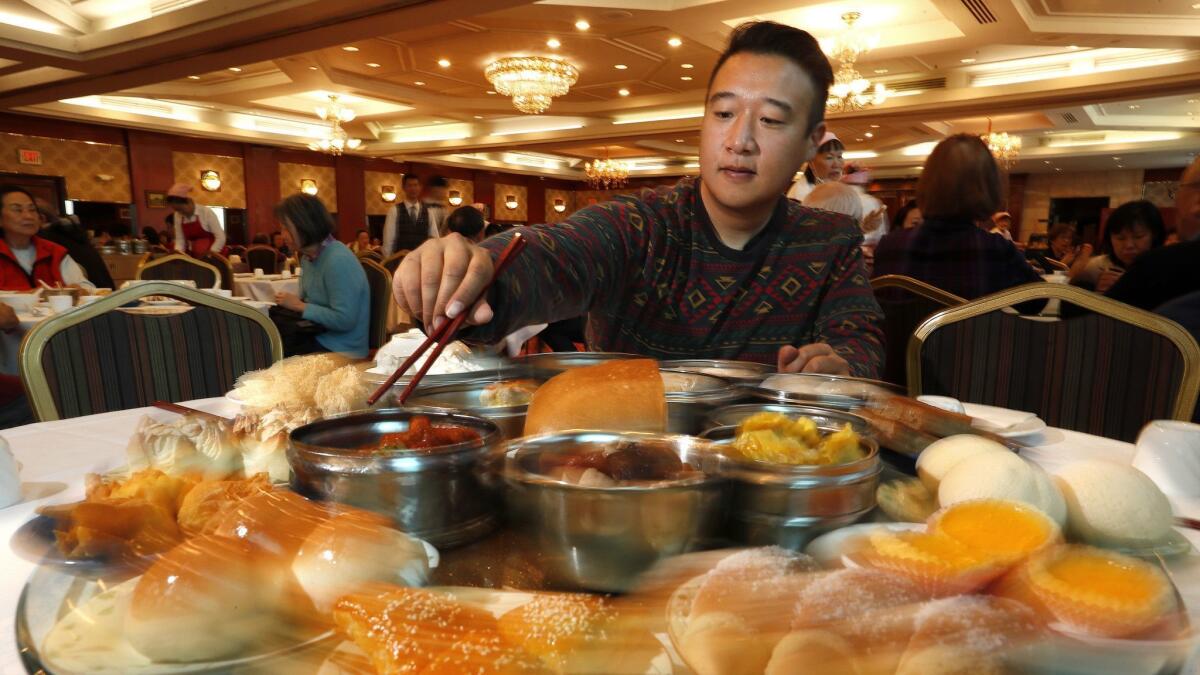
I have to confess I’ve never cared much for the movie “Chinatown.”
I can acknowledge its status in the Los Angeles film canon as a potent reminder of the city’s dark history and the corrupt water wars that enabled the city’s existence. I concede that the film is stylishly shot and features some good acting.
I just can’t get on board with the ending. As private investigator Jake Gittes, played by Jack Nicholson, discovers the tragic, painful ending to the water rights corruption case he has just solved, a colleague tells him: “Forget it, Jake, it’s Chinatown.”
I’ve seen the movie several times, listened to the DVD commentary and read some of the gallons of ink spilled about this iconic last line. So I understand Chinatown is used as a metaphor for the futility of good intentions, a reference to the main character’s past experiences as a police officer stationed in the downtown L.A. neighborhood.
But something always rubs me the wrong way about that line. Because Chinatown in Los Angeles is a real place, with real people in it. Chinatown says a lot about this city.
It’s where a group of Chinese immigrant families banded together to rebuild their lives after city leaders razed the original Chinatown to make way for Union Station. It’s where the first Chinese Americans in this country fought their way into the American consciousness through food and culture and cultivated a sense of belonging for later generations like mine.
Today, it’s where Jewish people eat on Christmas, where Filipino Americans from the San Gabriel Valley can shop as though they’re back in Manila, where Latino immigrants working the late shift can eat dim sum with Tapatio at Won Kok at almost any hour. It’s where many Cambodian, Thai and Vietnamese immigrants found their first foothold in this country. If Chinatown is a metaphor for anything, it is America.
If you consider all of this, the “Chinatown” metaphor just doesn’t make sense. The reality is so much richer. And that reality is what I want to write about in my new column for the Los Angeles Times.
For the last seven years, I’ve been reporting on ethnic communities and race for The Times, focusing on the San Gabriel Valley and Asian American communities. What I’ve learned boils down to this: Understanding the cultures of Los Angeles is central to understanding Los Angeles as a place. And, in 2019, ethnic communities are not just colorful backdrop or sinister metaphor, but the main characters of the place we all love.
So in this column, I want to reintroduce you to Los Angeles — not the city of avocado toast and Hollywood and fading noir nostalgia, but a vibrant, ever-changing, international city defined by its diversity and its diasporas.
I’m not the type of columnist who has all the answers and feels comfortable telling you what to think. I can only show you what I see and hope that it makes you think.
I wanted to write this column because America in 2019 is a divided place and it’s more important than ever to build our fluency in one another’s differences. In a country where the distance between our ideological poles increases every day, I think our stories are our connective tissue. Here in Los Angeles we can learn about the world by talking to our neighbors and add perspective to charged online conversations by looking away from our screens and toward ourselves.
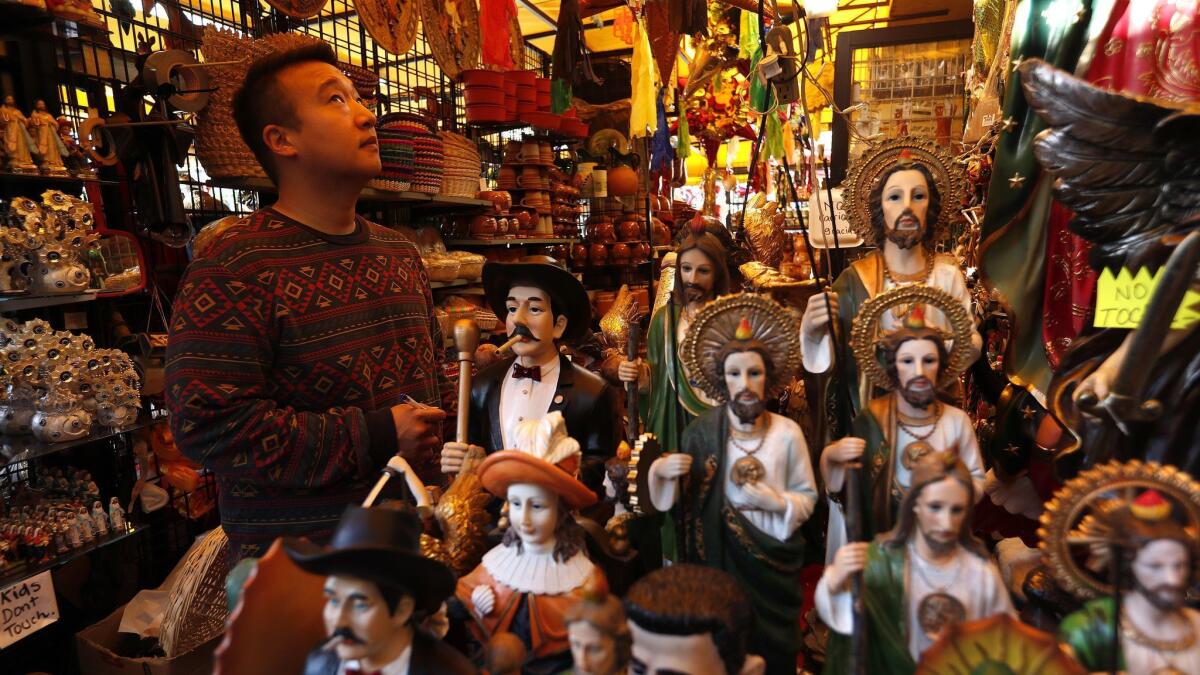
A little bit about myself: I’m a Michigan-born, Tennessee-raised son of Taiwanese immigrants, who came to UCLA to study economics and instead fell in love with Los Angeles — I think the exact moment was a few seconds after a 1 a.m. bite of the crispy duck with panang curry at Red Corner Asia Cafe in Thai Town as a college student.
I’ve lived in Culver City, Palms, Westwood, Sawtelle Japantown, East Hollywood, downtown, Alhambra and now West Adams. I love the vibrancy of the Eastside but strongly prefer the Westside’s street-parking availability.
I’m not a Lakers or Clippers fan, but after I witnessed Clayton Kershaw’s no-hitter in 2014, you might find me at a Dodgers game, draped in an obsolete Yasiel Puig jersey, balancing a helmet of carne asada nachos on my lap.
As Jonathan Gold showed us, food is the best and sometimes only way to experience all of Los Angeles’ cultures, so I’ll probably be writing about what I’m eating. In case you’re wondering, my favorite dim sum place is King Hua; for pastrami sandwiches I lean Langer’s; but for tacos I love Tito’s Tacos, Tacos Leos and Guisados equally.
I asked around and it appears that I’m the first Asian American metro columnist in the history of this newspaper, and I will passionately tell our community’s stories, which have gone untold for too long. But this is a column about all of Los Angeles, not just my part of it.
Jonathan Gold gave us the keys to a hidden city »
I fell in love with newspapers because I saw them as a place where on a given day, anyone and everyone’s story could be told. That principle has rarely matched up with the reality, but I wouldn’t be here if I didn’t believe that newspapers should belong to everyone.
“Everyone” is an important word that means different things to different people in this age of algorithmically shaped worldviews and the distortions of social media.
But for me the definition has always been simple: Everyone is everyone. Everyone is not just the people you agree with or look like, or the people who share your ZIP Code or speak your language. Everyone is everyone. And that’s what I’ll be writing about.
More to Read
Start your day right
Sign up for Essential California for news, features and recommendations from the L.A. Times and beyond in your inbox six days a week.
You may occasionally receive promotional content from the Los Angeles Times.
